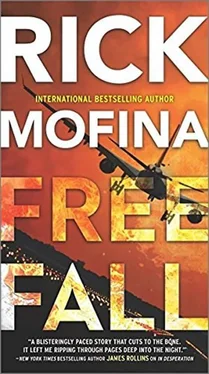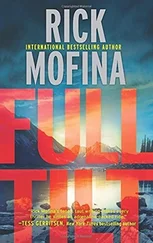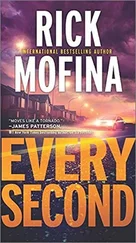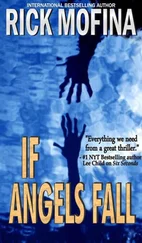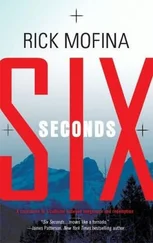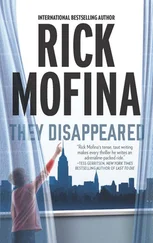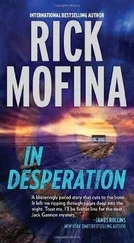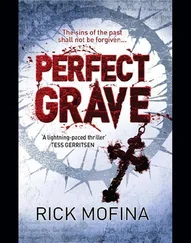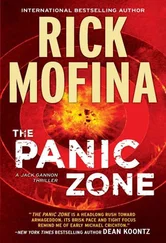Varner was updating his case notes with everything he, Special Agent Leonard Brock, Karl Steiger and Ted Malone of the NYPD had so far.
The United States Attorney was reviewing their evidence against Sloane concerning the passing of information to a private investigation agency for the purpose of surveilling Kate Page. Probably not much of a case there, Varner thought.
Then he consulted status reports from Scotland Yard in London.
Little news had emerged.
No progress had been made by British investigators on the origin of the emails. To date, authorities in the United States, the UK and Kuwait had failed to uncover any evidence suggesting the Shikra crash was a criminal action, or linked to the EastCloud flight.
Varner turned to the latest from Ron Sanchez with Cyber Crimes and the National Cyber Investigative Joint Task Force. While Ron and the task force had reported that they’d gotten close to the source of the email, their investigation was ongoing.
Still untraceable.
Varner shook his head.
The task force had experts from something like twenty intelligence and law enforcement agencies, including the best from the industry, yet Zarathustra had thwarted them all so far. If this person was that good, then was it possible that their claims that they could remotely control aircraft were true?
We need a break here.
A knock sounded at his workstation.
“Ready for the call, Nick?” Leonard Brock asked.
“Yup.” Varner gathered his notes.
* * *
Varner and Brock were joined by Trent Hollis, their supervisory agent, Steiger, Malone, Sanchez and a few others in a boardroom for a short teleconference call on the case with the Behavioral Analysis Unit.
Joanne Foley of the BAU led the call from Quantico, Virginia.
After a round of introductions, Foley, an analyst who’d studied the Zarathustra emails and the known case facts, presented her findings.
“I have to tell you-” her voice crackled on the line “-there’s not a lot here, so put whatever BAU offers into that context.”
“Of course,” Varner said. “We’re interested in anything you can provide or recommend.”
“All right. Again, it’s pretty thin, and much of it is obvious.”
Varner’s pen was poised over his yellow pad as Foley began.
“For our purposes, I’ll refer to your subject as Z. Your subject is on a mission. Z is clearly egocentric and craves attention for their mission. The reference to the German philosopher Friedrich Nietzsche suggests an above-average intelligence, someone with maybe one or two degrees.”
“What about the threat?” Hollis asked. “How do you weigh that?”
“With some difficulty. There is no technical information, nothing specific that would give it credibility. And, based on what I can deduce from the information you sent me, there’s no evidence that links Z’s messages to the cases at issue. Still, I would not rule out the potential. Again, you have nothing concrete on which to act.”
“Do you have any recommendations?” Varner asked.
“Publish the emails.”
“Really?” Hollis asked. “Wouldn’t that create problems, inspire copycats and invite unstable people to make demands for attention?”
“Yes, you would run that risk. However, with this case, even with these short messages, the syntax, the language, the content and subject are rather distinctive. Putting it out to the public creates the possibility that the nature of the content could be identified by someone who could point you to your subject.”
Soft murmuring rippled around the table before Foley continued.
“I’m suggesting you go to the press and request they publish an excerpt, but with a story that is framed in a way that limits panic in the airline industry. You could present it as an FBI appeal to the public for help locating a person of interest. The advantage is that you appear to be meeting Z’s demand for attention while turning the table on them. It’s not without risks, though.”
“Yes, we could anger Z,” Varner said, “or open the floodgates to false leads, dead ends and other unstable people. Or, by feeding Z’s ego, we could inspire more threats and demands.”
“Correct on all fronts.”
“And there’s no guarantee the press would agree to such a request,” Steiger said. “That could be a challenge.”
“Correct again,” Foley said. “But I could help you with points on how to frame it and how to pitch it to the media. Also, you could hold some information back in order to help you quickly eliminate any false claims or leads.”
Varner looked to Hollis, who was deep in thought.
“Unless you’ve got other avenues of investigation, or are absolutely certain Z is not a danger to commercial air travel,” Foley said, “this is one strategy to consider. Honestly, it appears to be your best option.”
“I agree,” Hollis said. “Let me talk to some people.”
* * *
Within two and a half hours, Varner and Hollis, with Foley on the line, were at Newslead’s headquarters in the same boardroom where they’d met earlier.
Graham Lincoln, Chuck Laneer and Kate Page listened as Varner provided updates.
Because of Newslead’s involvement, the FBI was sharing more information than they normally would on the status of the investigation. They updated them on Sloane, and on how they’d yet to identify the origin of the emails. Once they’d outlined the full context, they requested that Newslead publish Zarathustra’s email.
The request was met with silent, sober concern until finally, Lincoln responded.
“This raises significant ethical issues,” he said. “We need to give this very careful consideration. Give us some time to think this through and we’ll get back to you.”
Manhattan, New York
Eyeglasses were repositioned, pens were tapped and sections of text underlined as Newslead’s senior editors studied the three Zarathustra emails and the FBI’s request to publish them.
Everything was on one page, provided by the FBI.
The FBI had also given Newslead a short timeline of events and the edited email text they’d wanted published. Additionally, they’d provided notes on the hold-back information that would help authenticate any tips, should people call the news service.
“Absolutely nothing leaves this room,” Lincoln began. For the next several minutes he, Chuck and Kate recounted all Newslead had uncovered on the London and New York incidents.
“You have the facts as we know them,” Lincoln said. “Since we received the first email, we’ve been mindful of our journalistic duty and respectful of the roles of law enforcement and federal aviation investigators. But the story has intensified with the latest email. The FBI’s request raises ethical concerns. The question we need to answer is do we publish or not. Let’s go around the table. Jerry?”
“I say no,” Jerry Lemothe, deputy national editor and a perpetual gum chewer, said. “This is meant more for this Zarathustra than the FBI, but nobody should dictate what we write. We can’t allow stories to be extorted from us. If we did this, we’d set a precedent, and we’d open the floodgates to every malcontented crazy out there.”
National features editor Ellen Markon pushed her glasses to the top of her head and turned to Lemothe.
“But Jerry, it’s our job to inform the public,” she said. “And to protect the public’s right to know.”
“True,” Howard Kehoe said, “but we’d run the risk of being perceived as a branch of the police, an investigative tool. It’s not our job to aid police. We shouldn’t do it.”
“What about when we publish most-wanted info for police?” Marisa McDougal asked. “We certainly aided police last month in their search for the convicts who’d escaped from prison in Texas, and last week when that mother and her child were abducted in Los Angeles. I don’t see how this is much different.”
Читать дальше
Конец ознакомительного отрывка
Купить книгу
